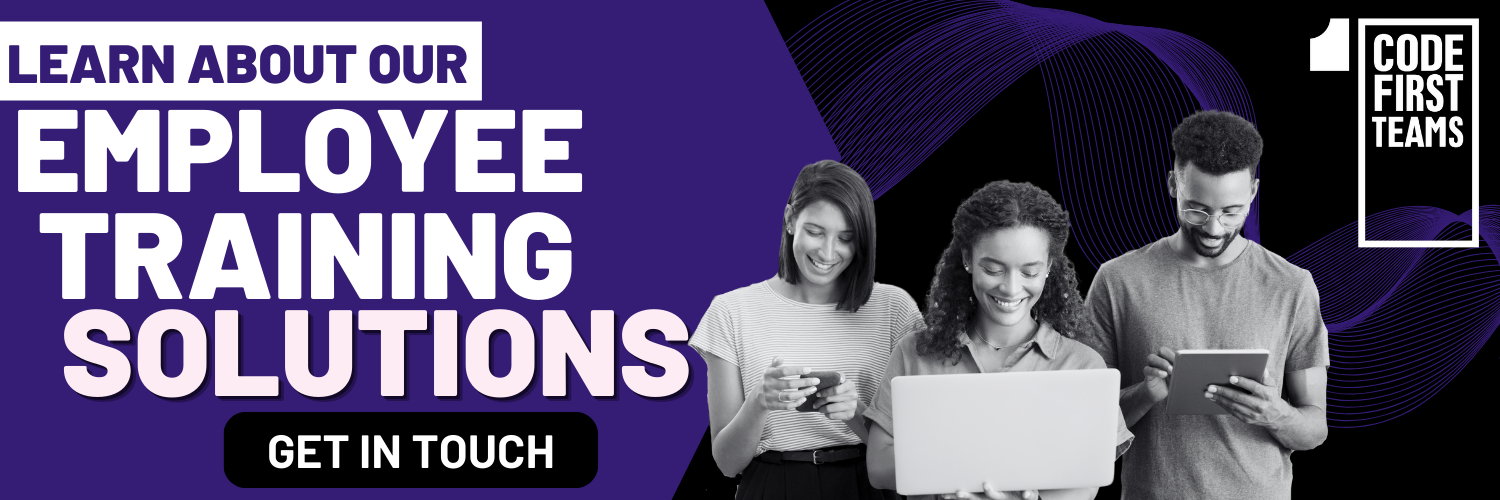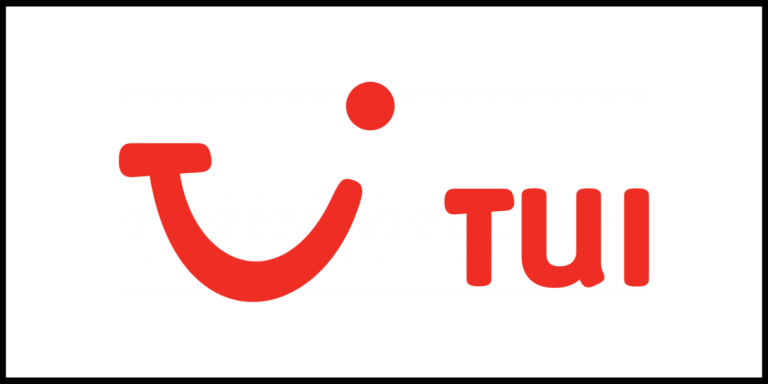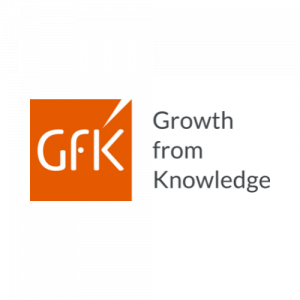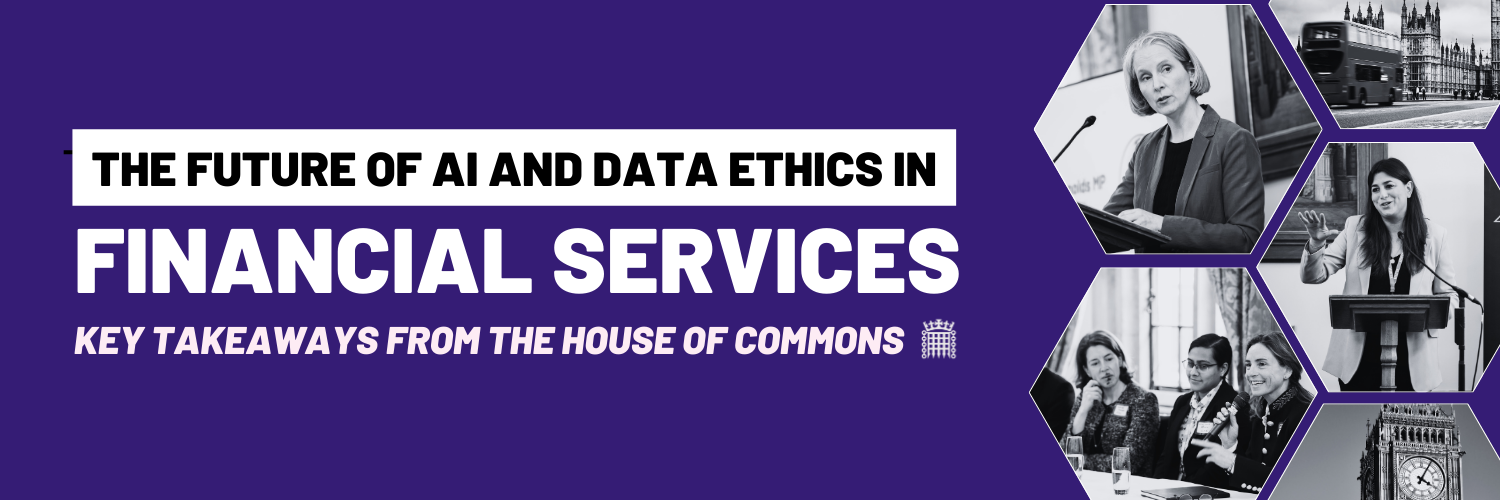
Content Menu
Key Takeaways from Our Event at the House of Commons
This month, Code First Girls, in collaboration with HM Treasury and the Women in Finance Charter, hosted an exclusive event at the House of Commons, bringing together over 60 CTOs, CISOs, financial services leaders, and experts to discuss AI and digital skills in finance.
The event explored the transformative power of AI in the sector, with a focus on its ethical implications and the opportunities it presents for building a diverse, resilient workforce, particularly in advancing women in technology.
If you couldn’t attend but want to learn more, we’ve gathered the key takeaways and actionable insights from the event.
Key Takeaway 1: Gender Parity AND The Urgent Need for Action
One of the event’s central themes was the urgent need to accelerate gender parity in the financial services sector.
Emma Reynolds, Economic Secretary to the Treasury, delivered a stark warning: at the current pace, gender parity in the sector won’t be achieved until 2038. As Reynolds emphasised, we cannot afford to wait that long. The time for faster action is now, and we must ensure that progress is made before the end of this Parliament.
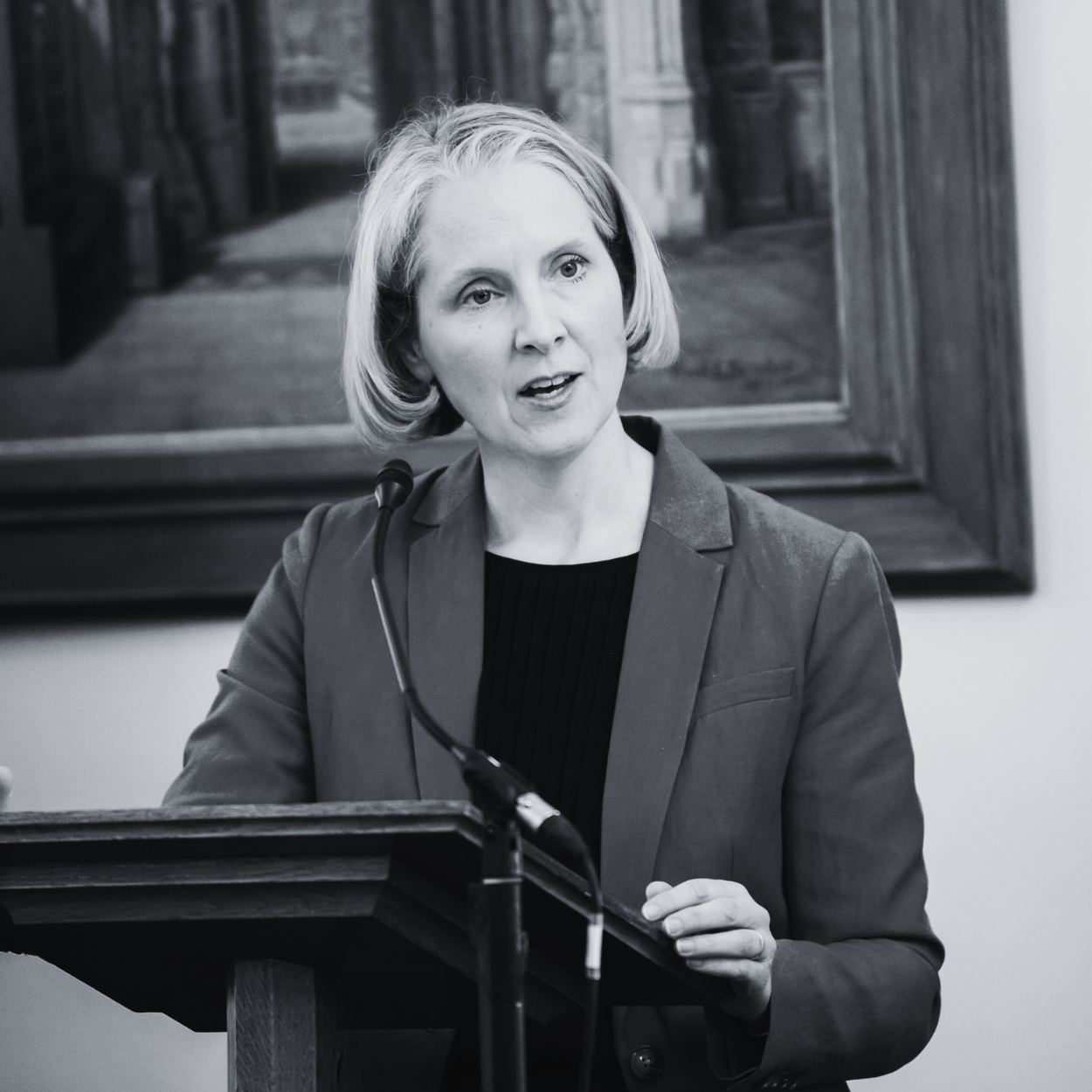
Dame Amanda Blanc, Group CEO of Aviva, added that diversity should not be viewed as an initiative—it’s a commercial imperative. Organisations must reflect their diverse customer base and the broader world or else risk being left behind by competitors.
She also noted the current international pressures facing global organisations, but emphasised that advancing diversity should never take a backseat to other priorities
Call to action: Organisations must move beyond box-ticking diversity targets and instead invest in building tech teams that truly reflect their customers and the global community. By embracing diversity of thought and innovation, and widening recruitment channels, they can drive meaningful progress and break new boundaries
Key Takeaway 2: AI Adoption, Opportunities, Risks, and Inclusion
The second key focus of the event was the transformative role AI is already playing in financial services. As the third-largest AI market globally, the UK has significant opportunities for AI to enhance fraud protection, improve consumer experience, and refine forecasting.
In fact, AI adoption in the UK financial services sector is expected to increase by 30% over the next five years. However, with rapid growth comes significant ethical challenges that must be addressed head-on.
With issues of compromised financial inclusion due to incomplete data through to the dangers of biased data models in credit scoring and insurance pricing, the risks are very real. And these challenges extend far beyond financial services—businesses across all industries must grapple with data bias, fairness, and the ethical use of AI.
Sholthana Begum, Chair of the Technology-RegGenome Project at Cambridge Judge Business School, highlighted that AI must enhance trust in financial services, not erode it. The sector must actively embed ethical AI practices, reskill employees across functions, and focus on increasing diversity in AI leadership.
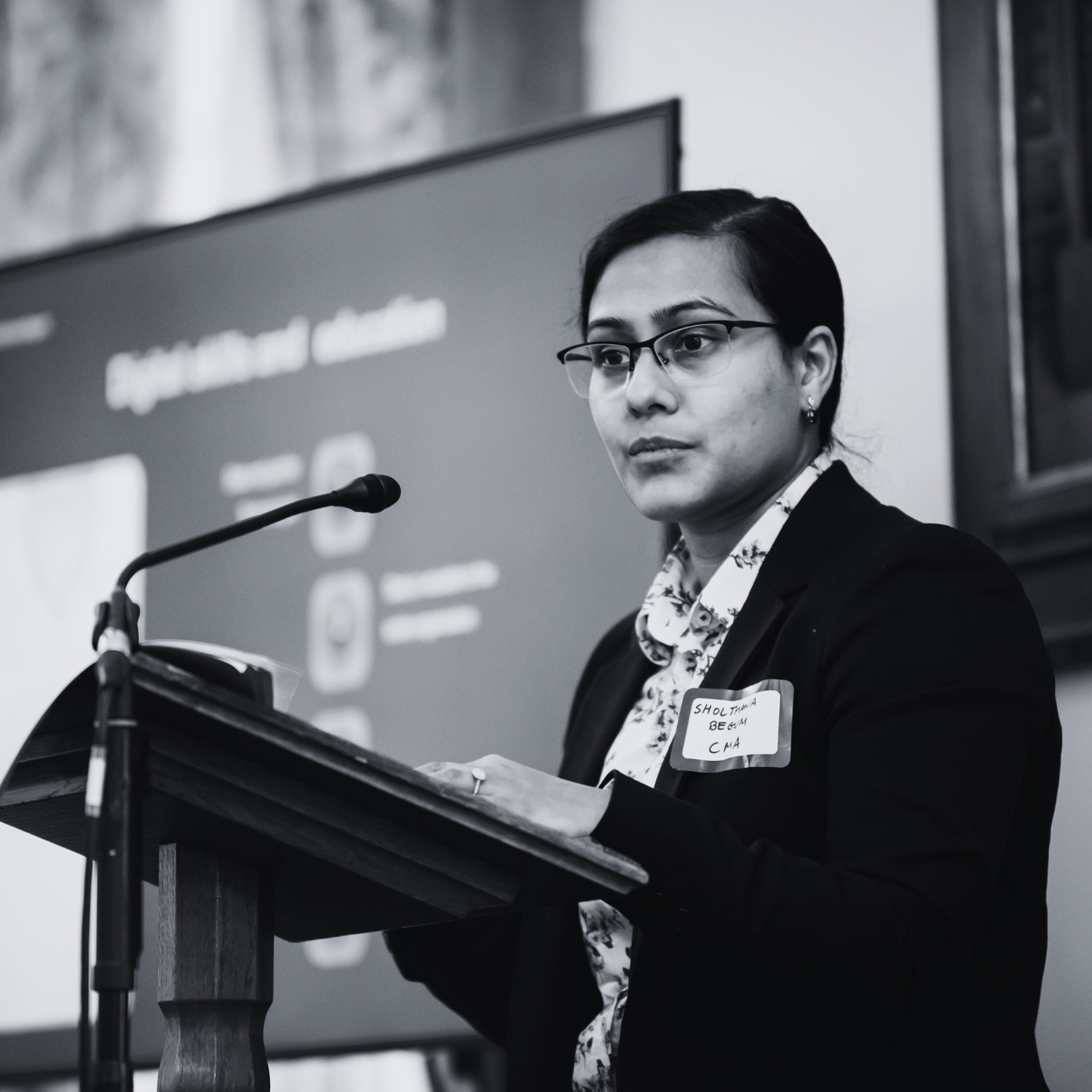
Call to action: Prioritising ethical AI adoption in business is now essential. Upskilling and reskilling employees to ensure they are deploying inclusive practices at the heart of all AI initiatives is an urgent need to reduce business risk.
Key Takeaway 3: Workforce Transformation and Bridging the Skills Gap
As AI rapidly evolves, the demand for skilled professionals in AI-related roles is soaring. However, the UK workforce is not yet equipped to meet this growing demand.
Alexandra Mousavisadeh, CEO of Evident, shared insights from her company’s latest report, which benchmarks global banks on their AI adoption. The report evaluates AI capabilities across four key drivers: Talent, Innovation, Leadership, and Operational Transparency. Alexandra highlighted that the top-ranking banks worldwide are adopting a strategy of aggressive hiring and upskilling to build the necessary talent pipeline to stay competitive in the AI-driven future.
Claire Tunley, CEO of the Financial Services Skills Commission, revealed that 160,000 professionals in the sector require urgent upskilling to address a 20% gap between talent demand and supply. As AI-driven roles increase, so does the need for leadership in AI—organisations must focus on reskilling their employees for AI-enabled roles.
Claire said that we are at a turning point. AI is transforming everything we do in Financial Services —how businesses assess risk, serve customers, detect fraud, and even make investment decisions. But she also outlined the real opportunity:

Call to action: Organisations need to invest in structured AI training, integrating both technical and human skills while partnering with policymakers to align skills development with future workforce needs.
Final Thoughts
The event closed with a powerful reminder from the expert panel discussion: AI adoption should not be the sole responsibility of technical teams. AI innovation must be a collective responsibility, involving every part of an organisation—from leadership to legal teams, compliance, and customer-facing staff.
As Phil Smith, Chair of Skills England, highlighted, the UK’s skills system must be reformed to meet industry needs, and collaboration between the public and private sectors is key to scaling up AI education.
The Solution: AI Upskilling with Code First Teams
At Code First Girls, we are committed to ensuring that professionals at all stages of their careers can access AI upskilling opportunities.
Under our Code First Teams brand, we offer comprehensive training programs which are designed to equip individuals, from beginners to senior leaders, with the essential skills needed to navigate AI’s evolving landscape.
Whether you’re an employer looking to support beginners with AI essentials or deepen your tech team’s AI expertise, Code First Teams provides the resources and support to help you succeed in the AI-driven future.
GET IN TOUCH WITH CODE FIRST TEAMS
Companies around the world trust Code First Teams to:
- Upskill all employees with essential low code/no code skills for non-technical or tech-adjacent roles
- Provide skills to accelerate tech career development and progression
- Close the internal digital skills gaps through reskilling and upskilling programmes with in-demand tech skills
Why not find out for yourself? Speak to our experts here. 👇

